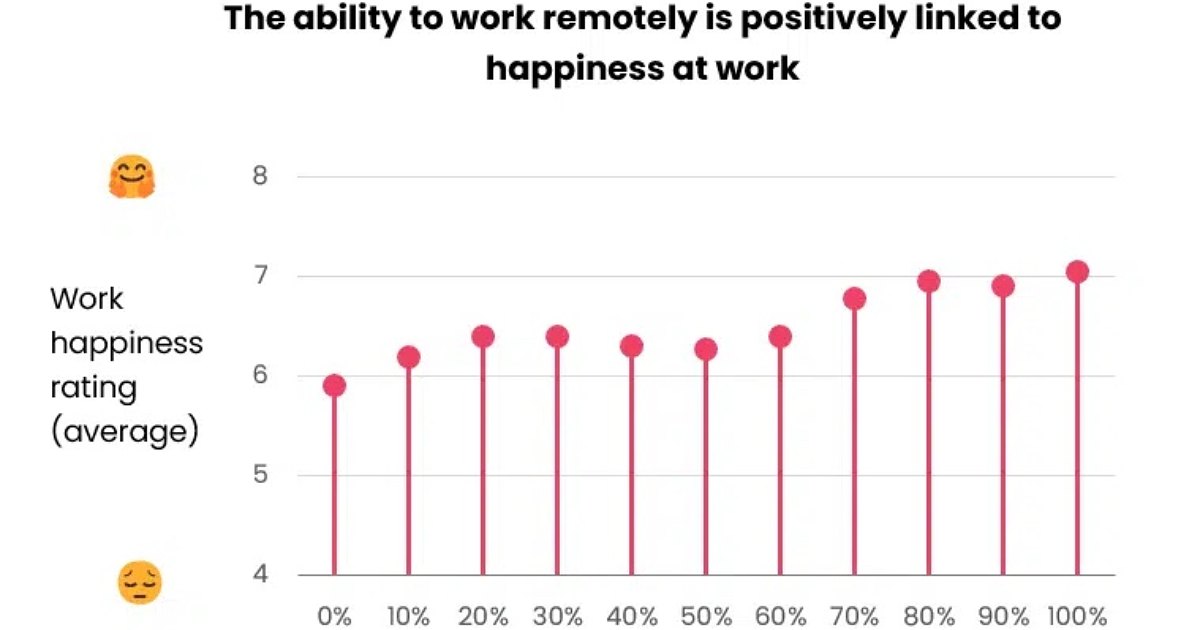
Powering Agile Transformation: Why Marketing Is the Hidden Accelerator
Agile transformation succeeds when Marketing is a strategic partner. Here's how marketing leaders can help lead Agility transformation across the business. Read more.

Recent research from Tracking Happiness has revealed that the ability to work remotely can increase employee happiness by up to 20%. The study was based on survey data from 12,455 respondents worldwide.
The data shows that those who work remotely full-time reported an average work happiness rating of 7.04 on a 1-10 scale, while those who come into the office 100% of the time averaged 5.9. Additionally, reducing a person's ability to work remotely appears to have a negative impact on their happiness.
Millennials were found to benefit the most from working remotely, with the highest increase in happiness. Interestingly, research showed that happiness ratings decreased significantly for workers with a commute time of over 60 minutes.

The Link Between Remote Work and Employee Happiness
Don't worry ... it's FREE!
Agile transformation succeeds when Marketing is a strategic partner. Here's how marketing leaders can help lead Agility transformation across the business. Read more.
Some 45% of full-time professionals now have a hybrid work arrangement, down from 62% in 2022, and 46% say their organization has changed its policy to require more time to be spent in the office.
Discover how to boost your team's creativity with real-world tactics like reframing challenges and gamifying ideation sessions. Read more.
Creative professionals say they expect demand for video production, motion graphics, and creative strategy services to increase most, according to recent research.
Fully 71% of CEOs say they would give their CMO's performance a grade of "A" or "B," according to recent research.
More brands are moving marketing in-house to cut costs and gain control over data, creative, and media. Explore in-housing models and tips. Read more.